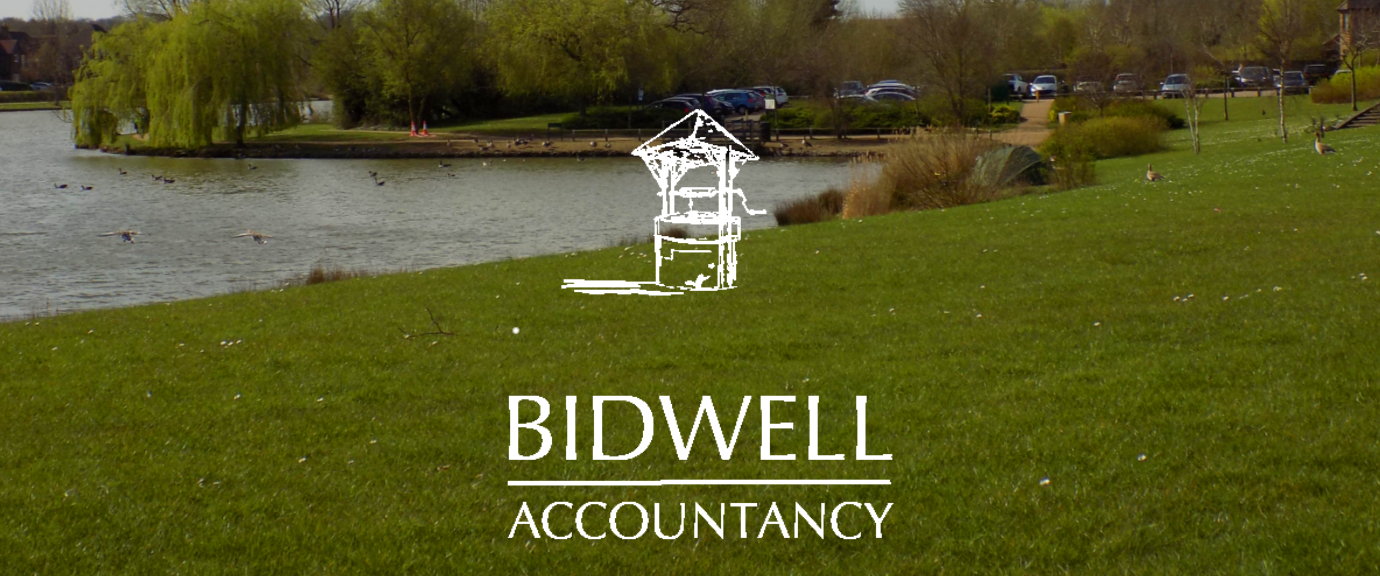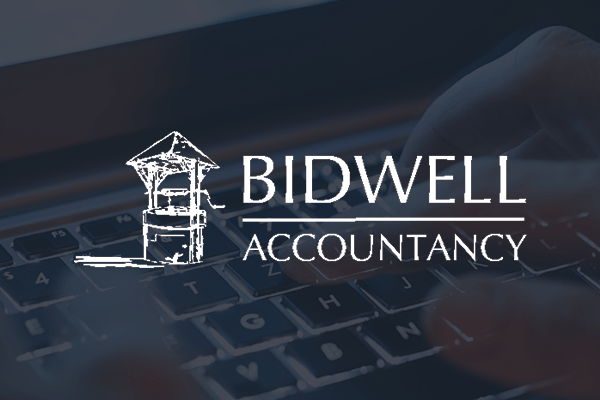December Newsletter

Welcome to our newsletter for December. As always, if you have anything you'd like further help with, do get in touch and we'll be pleased to help. Our newsletters usually include information about changes and updates so we are here to clarify anything that is unclear, within the context of your own circumstances.
Christmas Opening Hours
Our offices will be closing on Tuesday 19th December 2023 and will re-open on Tuesday 2nd January 2024.
If you do require any support over the Christmas period then please e-mail clients@bidwellaccountancy.com and we will get back you as soon as we can.
The first article relates to the £5000 tax free savings band for anyone earning less than £17,570 and also details of the Personal Savings Allowance thresholds. The marriage allowance entitlement is well worth looking at, especially as it's possible to backdate any unclaimed allowances for the past four tax years. If you are due a student loan refund, we've included some contact information and a little bit more about it in our third article. The state retirement age is reviewed regularly and, as a result, an increase to age 67 is due within the next few years, depending on your date of birth. Read on to find out how this might affect you. Finally, we include some useful financial deadlines that take us up to the end of January 2024.
Income Tax - £5,000 savings zero rate band
If you have taxable income of less than £17,570 in 2023-24 tax year you will have no tax to pay on interest received. This figure is calculated by adding the £5,000 starting rate limit for savings (where 0% of the interest is taxable) to the current £12,570 personal allowance. However, it is important to note that if your total non-savings income exceeds £17,570 then the starting rate limit for savings is unavailable.
There is a tapered relief available if your non-savings income is between £12,570 and £17,570 whereby every £1 of non-savings income above a taxpayer's personal allowance reduces their starting rate for savings by £1.
There is also a Personal Savings Allowance (PSA) that can be beneficial to savers. This allowance ensures that for basic-rate taxpayers the first £1,000 interest on savings income is tax-free. For higher-rate taxpayers the tax-free personal savings allowance is £500. Taxpayers paying the additional rate of tax on taxable income over £125,140 do not benefit from the PSA.
Interest from savings products such as ISA's and premium bond wins do not count towards the limit. And so, taxpayers with tax-free accounts and higher savings can still benefit from the relevant PSA limits.
Banks and building societies no longer deduct tax from bank account interest as a matter of course. Taxpayers who need to pay tax on savings income are required to declare this as part of their annual Self-Assessment tax return.
Taxpayers that have overpaid tax on savings interest can submit a claim to have the tax repaid. Claims can be backdated for up to four years from the end of the current tax year. This means that claims can still be made for overpaid interest dating back as far as the 2019-20 tax year. The deadline for making claims for the 2019-20 tax year is 5 April 2024.
Marriage allowance entitlement
The marriage allowance applies to married couples and those in a civil partnership where a spouse or civil partner does not pay tax or pay tax above the basic rate threshold for Income Tax (i.e., one of the couples must currently earn less than the £12,570 personal allowance for 2023-24).
The allowance works by permitting the lower earning partner to transfer up to £1,260 of their personal tax-free allowance to their spouse or civil partner. The marriage allowance can only be used where the recipient of the transfer (the higher earning partner) does not pay more than the basic 20% rate of Income Tax.
This would usually mean that their income is between £12,571 and £50,270 in 2023-24. For those living in Scotland this would usually mean income between £12,571 and £43,662.
Making a claim, could result in a saving of up to £252 for the recipient (20% of £1,260), or £21 a month for the current tax year. In fact, even if a spouse or civil partner has died since 5 April 2018, the surviving person can still claim the allowance (if they qualify) by contacting HMRC's Income Tax helpline.
If you meet the eligibility requirements and have not yet claimed the allowance, you can backdate your claim to 6 April 2019. This could result in a total tax break of up to £1,256 if you can claim for 2019-20, 2020-21, 2021-22, 2022-23 as well as the current 2023-24 tax year. If you claim now, you can backdate your claim for four years (if eligible) as well as for the current tax year. Even if you are no longer eligible or would have been in all or any of the preceding years, then you can claim your entitlement.
HMRC's online Marriage Allowance calculator can be used by couples to find out if they are eligible for the relief. An application can be made online at GOV.UK.
Due a student loan refund?
Student Loans are part of the government's financial support package for students in higher education in the UK. They are available to help students meet their expenses while they are studying, and it is HMRC's responsibility to collect repayments where the borrower is working in the UK. The Student Loans Company (SLC) is directly responsible for collecting the loans of borrowers outside the UK tax system.
The main finance package elements available to students include loans for tuition fees and maintenance loans (to help with living costs). The maximum loan amounts are capped with the maximum amount depending on a student's circumstances. Maintenance grants are also available under certain circumstances.
The grants do not have to be repaid but do reduce the amount of available maintenance loan a student can claim.
Students that have finished their studies and entered the workforce must begin to make loan repayments from the April after they have finished their studies or when their income exceeds an annual threshold.
Since 6 April 2023, the thresholds and rates are as follows: Plan 1 - £22,015, Plan 2 - £27,295 and Plan 4 (Scottish student loans) - £27,660. The terms of loan repayment for courses of study started before 01 September 2012 are referred to as 'Plan 1', and those started after 01 September 2012, are referred to as 'Plan 2'. Repayments will be deducted at a rate of 9% of income over the threshold. The threshold for postgraduate loans is £21,000 and repayments are deducted at a rate of 6%
Taxpayers that have made repayments but whose total annual income was less than the respective thresholds can apply for a student loan refund. An application cannot be made until after the relevant tax year has finished. Taxpayers can also apply for a refund from the Student Loans Company if the loan debt has been repaid in full.
The Student Loans Company repayment call waiting times are currently far longer than usual due to exceptionally high volumes of refund requests. Taxpayers should first check if they are due a refund by looking at https://www.gov.uk/repaying-your-student-loan/getting-a-refund
Current State Pension age
The second review of the State Pension age has been published by the Department for Work and Pensions. The State Pension age is currently 66. The review has stated that a further increase in the State Pension age to 67 for those born on or after April 1960 will take place as planned between 2026 and 2028. Following this announcement, the government has confirmed the State Pension age will rise to 67 by the end of 2028.
The Pensions Act 2014 requires the Secretary of State for Work and Pensions to regularly review the State Pension age. There had also been plans for a further gradual rise in the State Pension age to 68 between 2044 and 2046 for those born on or after April 1977. The government plans to have a further review within two years of the next Parliament to reconsider the rise to age 68.
This will ensure that the government is able to consider the latest information to inform any future decision on the State Pension age. This will include life expectancy and population projections, the economic position and the impact on the labour market.
The government has said they remain committed to the principle of providing 10 years notice of changes to State Pension age, enabling people to plan effectively for retirement. All options for the rise to the State Pension age from 67 to 68 that meet the 10 years notice period will be in scope at the next review.
Tax Diary December 2023/January 2024
1 December 2023 - Due date for Corporation Tax payable for the year ended 28 February 2023.
19 December 2023 - PAYE and NIC deductions due for month ended 5 December 2023. (If you pay your tax electronically the due date is 22 December 2023).
19 December 2023 - Filing deadline for the CIS300 monthly return for the month ended 5 December 2023.
19 December 2023 - CIS tax deducted for the month ended 5 December 2023 is payable by today.
30 December 2023 - Deadline for filing 2022-23 self-assessment tax returns online to include a claim for under payments to be collected via tax code in 2024-25.
1 January 2024 - Due date for Corporation Tax due for the year ended 31 March 2023.
19 January 2024 - PAYE and NIC deductions due for month ended 5 January 2024. (If you pay your tax electronically the due date is 22 January 2024).
19 January 2024 - Filing deadline for the CIS300 monthly return for the month ended 5 January 2024.
19 January 2024 - CIS tax deducted for the month ended 5 January 2024 is payable by today.
31 January 2024 - Last day to file 2022-23 self-assessment tax returns online.
31 January 2024 - Balance of self-assessment tax owing for 2022-23 due to be settled on or before today unless you have elected to extend this deadline by formal agreement with HMRC. Also due is any first payment on account for 2023-24.

Unit 157, Milton Keynes Business Centre,
Foxhunter Drive, Milton Keynes,
Buckinghamshire, MK14 6GD
Bidwell Accountancy





